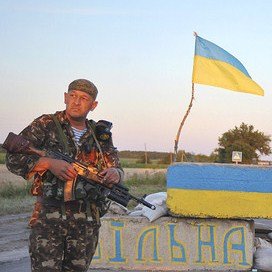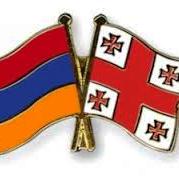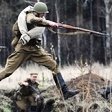(The Economist) A “NON-LINEAR” war, explains Natan Dubovitsky, a writer, is how states are likely to fight each other in future—if they do not already. Individual regions or cities will form temporary coalitions, only to split apart in mid-fighting and find new allies. Each force has its own aims, and these too can be fluid. The war has many components, of which battle is only one element. “Most understood the war to be part of a process,” writes Mr Dubovitsky, and “not necessarily its most important part.”
Mr Dubovitsky’s idea was featured in a short story published in March, as Russian forces were seizing control of Crimea. Its most telling detail is the author’s real identity: Vladislav Surkov, a long-standing ideological adviser to Russia’s president, Vladimir Putin. Mr Surkov’s tale is a fanciful exercise, but it is also as good a blueprint as any for the Kremlin’s efforts to direct the war in eastern Ukraine. […]
The advantage of such an approach is “plausible deniability,” explains Dmitry Gorenburg of CNA Corporation, a policy and security think-tank. Above all, it helps Russia to avoid a new round of American and European sanctions, which would aim not just at individuals but at entire industries. Existing sanctions and the fears of more to come have already had a “chilling effect” on investment, according to the IMF, which now says that Russian GDP growth will be zero this year. The murkiness and obfuscation of Mr Putin’s non-linear war in Ukraine also complicate Western diplomacy, dividing opinion and making it harder to find consensus.
What Mr Putin would really like is a conflict of just the right size: big enough to force Mr Poroshenko into concessions but not so large it drags Russia in directly or forces it to subsidise Ukraine’s eastern regions. As Mr Gorenburg explains, Mr Putin will facilitate the transfer of Russian arms, fighters and money so as to ensure that “the insurgency isn’t defeated, but while doing the minimum possible”. […]
A more likely outcome is warlordism, or the rise of authorities who rely for their position not on ideology but on “force and patronage,” explains Kimberly Marten at Columbia university. Warlords, Ms Marten says, use violence and bribery to exert control over territory and money flows—the sort of informal politics that Moscow knows well. In conflict zones like eastern Ukraine, those who enjoy access to resources naturally see their influence rise. The Kremlin’s preferred intermediaries—men like Alexander Borodai, a Russian public-relations manager and political consultant who is now prime minister of Donetsk’s “people’s republic”—have become ever more prominent. […]
Read the full article "War by any other name" © The Economist











